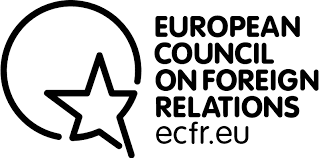Trade in services is critical for improving the competitiveness of African economies and improved trade in services with African countries could help the European Union diversify its supply chains, strengthening resilience and reducing dependencies on China and other Asian countries, according to a new policy brief published by the Brussels-based European Council on Foreign Relations (ECFR).
Services are largely missing from Europe’s trade and development cooperation agenda with Africa, which is almost exclusively focused on commodities and other primary goods — despite the growing importance of services in the global economy. Yet the services sector has now outstripped the primary and secondary sectors in their contribution to African output, making up more than half of the continent’s GDP. A stronger services trade between the EU and Africa would allow European multinationals to near-shore their production processes and diversify away from Asia-focused supply networks. Improved trade in services would also allow the EU to influence regulatory models across various sectors.
China and other non-Western powers wield significant economic influence in Africa, which they can use to shape regulatory processes and influence standards in their favor. In light of the increasing geopolitical competition with China, the EU should use trade cooperation on services as a powerful means to nurture a shared understanding with African countries on economic, environmental, digital, and social goals. The 2018 African Continental Free Trade Area (AfCFTA) agreement includes a protocol on trade in services, which aims to liberalize services markets and improve their domestic regulation. To that end, the AfCFTA offers an occasion for the EU to encourage intra-regional trade by supporting the AfCFTA negotiations, and to build on the agreement to create new opportunities for diversifying EU-Africa trade.
Facilitating trade in services is key to ensuring that the EU-Africa trade partnership is comprehensive, forward-looking, and mutually beneficial. As technology blurs the lines between goods and services, a shallow trade partnership that addresses goods alone is no longer grounded in the reality of modern business and offers limited prospects for a dynamic trade partnership in the 21st century.
The study also recommends several avenues for cooperation on the implementation and expansion of the continental services agenda under the AfCFTA: strengthening the data on Africa’s services trade; promotion of regulatory transparency and cooperation between the EU and Africa; exploitation of synergies between the AfCFTA and multilateral initiatives on services; and experimentation with non-traditional, light institutional structures.



